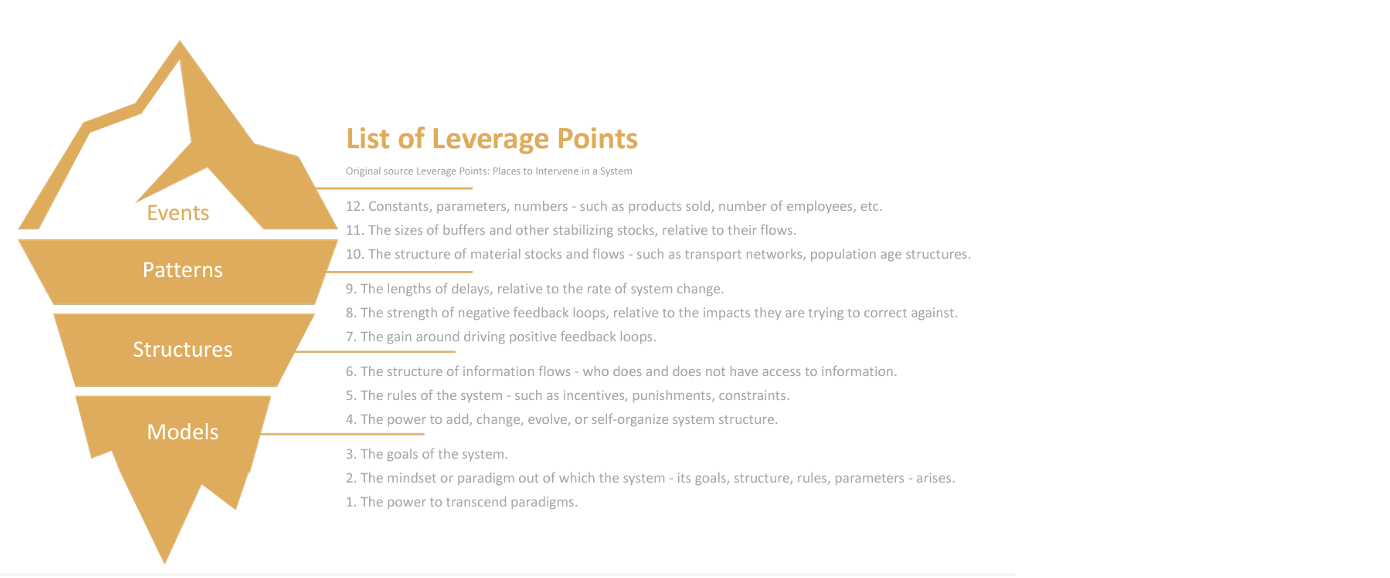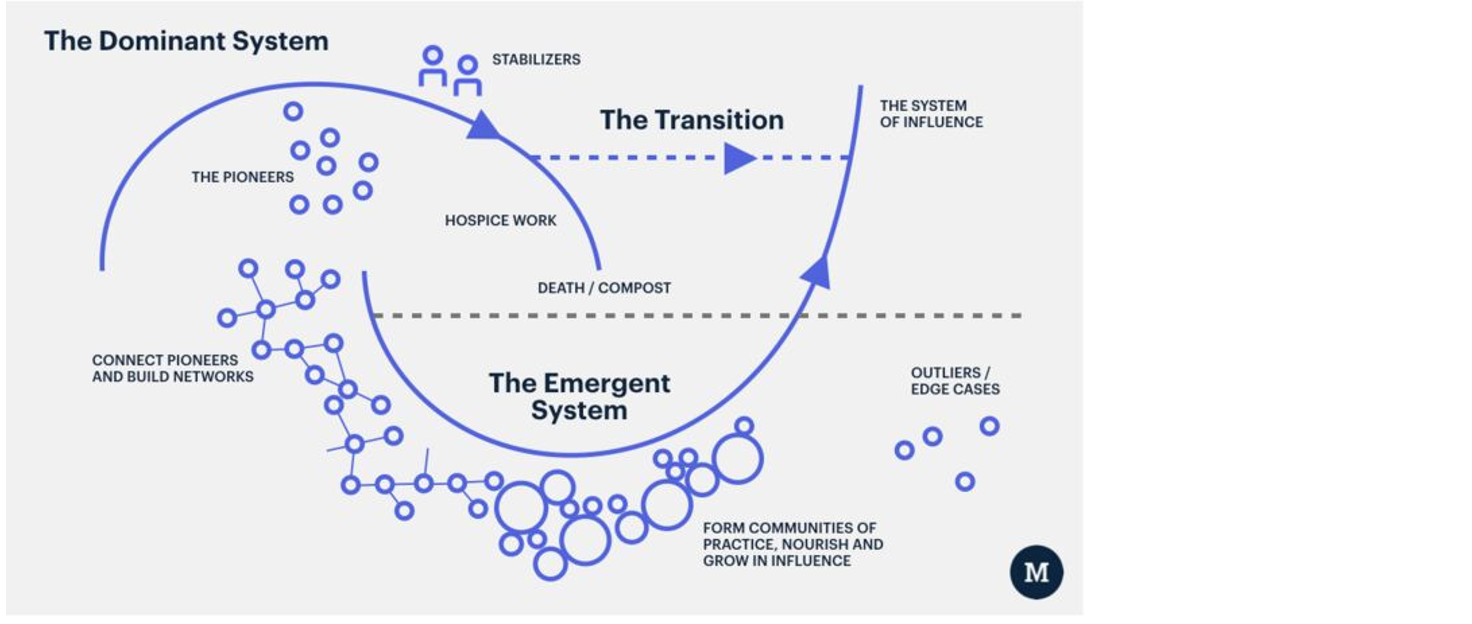by Ben Attle*
As early as 2014, people were arguing that social intrapreneurs were among the most valuable employees in a company — today, their role may need a re-think.
Social intrapreneurs, people within large corporations who take direct initiative for innovations that address social or environmental challenges while also creating commercial value, allow companies to “do well and do good” simultaneously.
In a world beset by hardship and instability, systems thinking may give a clue as to how social intrapreneurs can take their work to the next level.
In recent times, we have already seen (social) intrapreneurship expand to a number of areas beyond its old boundaries of large corporations; from public institutions, with the Schwab Foundation for Social Entrepreneurship recognizing “public social entrepreneurs” in their awards for the first time in 2019, as well as Small- & Medium-sized Businesses.
Intrapreneurship is changing
It’s apparent that intrapreneurship has now expanded beyond where it started. Intrapreneurs do for organizational innovation what an entrepreneur does for their own start-up, and arguably the case for social intrapreneurship has never been more pressing.
From the climate emergency and rampant inequality, to access to healthcare and refuge from active war zones, there remain societal issues that impact us all. In this context, is it enough for discrete products and services to be the output of social intrapreneurs while old cultures and behavioural patterns of organizations remain unchanged?
Here’s where systems thinking and the Systemic Intrapreneur come in.
Introducing the Systemic Intrapreneur
A Systemic Intrapreneur is a professional transforming the core purpose, strategy, operations and culture of their company or organization to be fit for purpose in a just and regenerative economy.
This draws upon the field of systems thinking and its concept of leverage points. While systems thinking is an old idea, the rise of systems thinking as a coherent set of concepts began in the mid-twentieth century with the advent of general systems theory. Recently, it has been gaining increasing use and popularity.
The iceberg model is a helpful tool to illustrate how deep-seated mental models and values extend well beyond the behaviours and strategies immediately visible. The point, in short, is that there are levers or places in a system where a small shift can produce big changes, helping to guide organizations from the old to the new.

Social intrapreneurship has famously tried to resolve immediate causes, course-correcting to an extent the role of business. However, it is becoming increasingly clear that transformative change is required, not simply new products or services. Systemic Intrapreneurship could provide that change.
Crucially, for systems change it is important that old systems change and adapt. The Berkana Institute’s Two Loops Model has been used as a tool to think about what the role of a particular project or organization is having towards systems change. It shows the curves of the old system dying and the new system rising to replace it, the dominant system making space for the emergent.

Supporting societal change is more than social entrepreneurship (creating new things) or even conventional forms of social intrapreneurship. There are many cases where a company declares their intended purpose to benefit people and planet, and the UN’s Sustainable Development Goals have increasingly aided organizations in taking this public stance. In practice, the operations of the organization too often fall short of reaching their intended or societally desirable purpose.
Systemic intrapreneurs are essential in these scenarios, to aid in transforming the core of an organization. But the reality of creating a purpose-aligned business is complex and challenging.
Unleashing the power of systems thinking
Just as with traditional intrapreneurship, many steer clear from practicing systemic intrapreneurship because it falls outside of their formal role. It is also difficult to sustain motivation across the change process. Some intrapreneurs even fear for their job security if they push too hard.
Practicing systemic intrapreneurship represents an even bigger challenge — but the potential rewards are equally great. Even a small shift in a large organization can make a big change.
Social intrapreneurship has had proven success in driving new ideas, products and services — and sometimes even whole new businesses — across industries and contexts. Systemic intrapreneurship could build on that progress, unleashing the true potential of changing systems from within.
*Co-Managing Director, Circle of Intrapreneurs
**first published in: Weforum.org




 By: N. Peter Kramer
By: N. Peter Kramer

